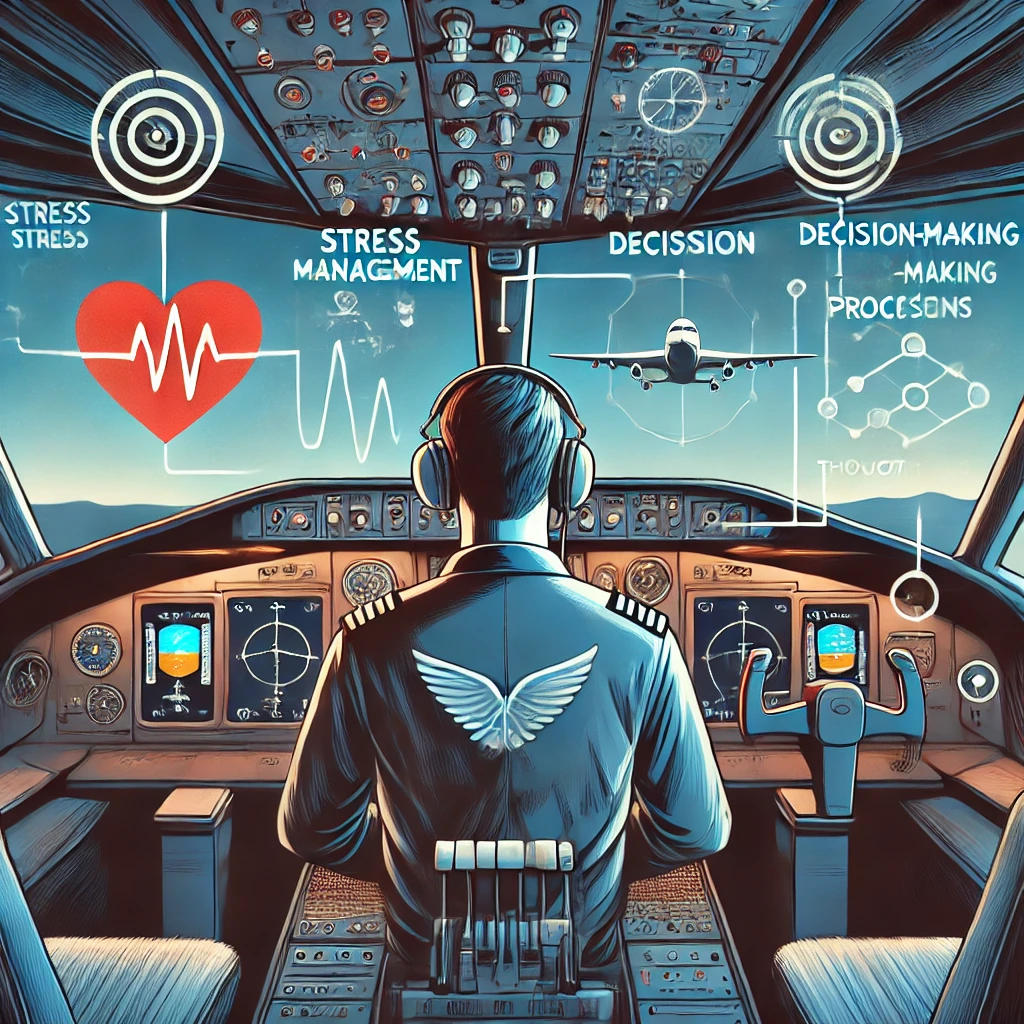Flight psychology is a discipline that aims to understand the mental and emotional states of pilots and aviation personnel during flight. The flight environment can become stressful due to the combination of many factors, and this can directly affect pilots’ decision-making processes. In this article, we will discuss the effects of stress on flight psychology, stress management methods, and how decision-making processes can be optimized.
The Role of Stress in Flight Psychology
During flight, pilots must constantly make complex decisions. Weather conditions, technical malfunctions, communication with traffic control, and emergency scenarios can create high levels of stress on pilots. This stress can affect the individual’s performance and ability to focus. Chronic or acute stress can lead to cognitive dysfunction, making pilots more prone to errors.
It is also known that stress can limit decision-making abilities in emergency situations that require rapid decision-making during flight. High stress levels can cause the “fight or flight” response to take effect and sometimes cause logical thinking to take a back seat.
Stress Management Methods
Effectively managing stress is vital to increasing flight safety. In the aviation world, stress management can be achieved both at the individual and team level. Here are some methods used for stress management:
- Training and Simulations: Pilots prepare for high-stress scenarios by simulating them in advance. This increases their ability to cope with stress during real flight.
- Breathing Techniques: Deep breathing allows the body to relax during stress and helps the pilot think more clearly.
- Communication and Team Support: Effective communication between team members allows stressful situations to be resolved more quickly. CRM (Crew Resource Management) is important in this context.
- Sleep and Rest: Pilots being rested and getting enough sleep is an important factor in coping with stress. Lack of sleep can have negative consequences on decision-making processes.
- Physical Activity: Regular exercise reduces the physical effects of stress and increases the mental endurance of the individual.
Decision-Making Processes and the Effects of Stress
Decision-making is a critical skill for pilots for flight safety and operational success. However, under stress, this process can become difficult. Pilots can make some decision-making mistakes under stress, including:
- Overconfidence: Pilots can make risky decisions by being overconfident in their abilities in extremely stressful situations.
- Tunnel Vision: High stress can cause pilots to focus on only one problem and lose sight of the bigger picture.
- Time Pressure: Feelings of time constraints can lead pilots to make quick but wrong decisions.
Decision-making processes need to be managed carefully to avoid the negative effects of stress. Some strategies used for this are:
- Assessing the Situation: Even under stress, it is vital that pilots can objectively analyze the situation. This reduces decision-making errors brought on by time pressure.
- Considering Alternatives: Remembering that there is always more than one solution allows pilots to think flexibly, even under stress.
- Using Team Resources: Utilizing team members’ opinions and suggestions when making a decision facilitates more solid and informed decisions.
Conclusion
Flight psychology encompasses not only the technical skills of pilots, but also their ability to cope with stress and make the right decisions. Although stress is an inevitable element, when managed with the right methods and strategies, its negative effects on pilots can be avoided. Training, effective communication and stress management techniques allow pilots to perform more safely and successfully during flights.




